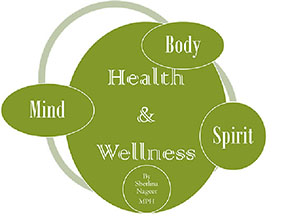The Ministry of Education, in partnership with Banks DIH Limited, recently launched a national skipping rope contest intended to increase levels of physical activity among schoolchildren in Guyana. According to the Banks DIH Marketing representative who spoke at the launch, the company is committed to the health and well-being of their customers. He called on young people particularly, to be more physically active.
It is true that children (and people of all ages, actually) have become less physically active over the years. Lifestyles are more sedentary now, with people walking less and spending many hours now in front of a television or computer screen. This inactivity, coupled with unhealthy diets, has created an international public health crisis.

According to a report from the United Nations Food and Agricultural Organisation (FAO), almost a quarter of the Guyanese population aged 20 and older are obese, with an additional 29.0% being overweight. Overall, that means that over half the Guyanese population is overweight. Both the current and former Ministers of Health have identified this as a very serious problem.
It is important, therefore, to encourage children and people of all ages to be more physically active (any amount of physical activity, if one is not active, can positively impact one’s health). Also, since many adult habits are formed during childhood, it is essential that children be encouraged to adopt healthier habits (at least 30 minutes of moderate activity – biking, dancing, jogging, brisk walking etc, 5 days/week). So, on the surface, this national skipping initiative might seem like a commendable idea. However, a more critical analysis reveals a major and very problematic fact – Coca Cola is this initiative’s main sponsor! In fact, at the launch, bottles of Coca Cola were prominently displayed, spelling out the word ‘SKIP’.
The fact that such a partnership could be entered into in the first place shows a serious and fundamental lack of understanding of key public health facts related to obesity and child health by the Guyana Ministry of Education. Multiple scientifically valid studies have proven that sugary drinks, like Coca Cola, are major contributors to childhood obesity worldwide. A typical 20-ounce soda contains 15-18 teaspoons of sugar and more than 240 calories. People who drink this “liquid candy” do not feel as full as if they had eaten the same calories from solid food and do not eat any less.
Research clearly and unquestionably shows that consumption of sugary drinks causes weight gain, regardless of if people engage in other unhealthy behaviour such as overeating and getting too little exercise. This link is even clearer in children. Another issue to be concerned about is the impact of all that sugar on children’s teeth, especially in a place like Guyana where dental care is not the most affordable or accessible.
Worldwide, public health experts recommend that soda and other ‘sweet drinks’ be avoided and eliminated from one’s diet, if one wants to lose weight and achieve better health. In no instance would Coca Cola ever be part of any child health initiative. In fact, schools all over the world are fighting to get Coca Cola and other sodas out of their cafeterias, but here in Guyana, the Ministry of Education is welcoming it with open arms. This is mindboggling! It makes absolutely no sense to encourage children to be more physically active on one hand, but to simultaneously market soda to them; any positive benefit from the physical activity would be erased by the consumption of this caffeinated sweet drink.
It is commendable that businesses wish to contribute positively to societal well-being. They are, after all, key members of society and should indeed play a role in ensuring that the society in which they operate and their customers live is as healthy as possible. However, the aim of companies like Coca Cola is to sell their product and make a profit; they are not in the healthcare business.
Coca Cola is aware of the negative health impact of its product and has embarked on a mission to ‘whitewash’ its image and maintain its profits. Children are the chief customers of soft drink companies like Coca Cola; most of the marketing is targeted towards them. The drink panders to their ‘sweet tooth’ and creates a lifelong preference (some even say addiction), often thoughtlessly getting passed down to the next generation (I have seen mothers feeding their babies soda in the baby bottle).
Corporate social responsibility can be a force for good, yes. However, more often than not, it is simply a way for companies to reap social capital as ‘do-gooders’ and to increase their profits and consumer base. If Banks DIH really wanted to be a more socially responsible corporation, it could establish a fund for the families of people killed and injured by those found driving under the influence of its alcoholic beverages. It could do more to ensure that children do not purchase/consume alcoholic products, and that adults do not consume them irresponsibly. It could encourage children to drink water, instead of Coca Cola. These are some of the elements of real corporate social responsibility. Promoting Coca Cola to schoolchildren after skipping is completely ridiculous. Are we not smart enough to see through these corporate ruses? Or do we just not really care about the children and their health?
Sherlina can be contacted at ssnageer@yahoo.com




